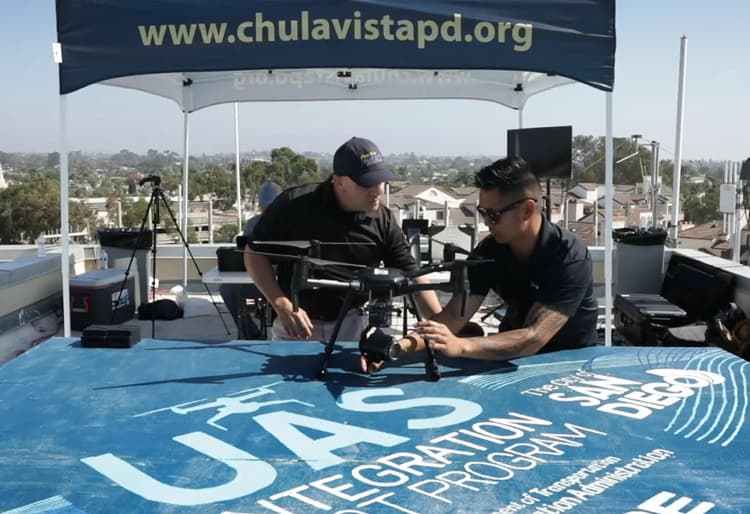CV Submits “Unsatisfactory” Document in Drone Lawsuit

By Alberto Garcia
Investigative Reporter
Lawyers for the City of Chula Vista were reprimanded in court for filing an “unsatisfactory” legal document that included multiple typos, inaccurate descriptions, and missing time stamps in a lawsuit filed by La Prensa San Diego, causing the judge to order them to file a corrected document by December 13th.
“It doesn’t pass muster,” Superior Court Judge Timothy Taylor said during the hearing, calling the filing "unsatisfactory."
The document is a log of video files the City submitted in a three-year legal case filed by La Prensa San Diego Publisher Arturo Castañares who is seeking disclosure of police drone videos, but the City continues trying to keep from having to disclose any videos even after an appellate court and the California Supreme Court ruled that police drone videos are not categorically exempt from public disclosure under the California Public Records Act (CPRA).
The City was required to submit a log of videos from March 2021 and detail the specifics of each record, including time, circumstances of the drone flight, and any applicable exemptions claimed to keep the videos from being released.
At the court hearing, Judge Taylor was frustrated that the log submitted by the City contained blatant errors, including several video entries that used the identical description of reports of a brush fire along the freeway that did not fit with the descriptions of the reason for the initial calls for service.
Several log entries were missing the date and time of the drone flights, and several other entries had typos and misspellings.
Some log entries incorrectly spelled domestic violence, paraphernalia, disabled, disturbance, juvenile, and collision.
Two lawyers from the Chula Vista City Attorney’s office could not explain the errors and apologized to Taylor for the mistakes.
Taylor set a new hearing for December 13th to review a corrected version of the video logs.
La Prensa San Diego first filed a CPRA request in April 2021 asking for police drone videos for the prior month. The request was denied by then-City Attorney Glen Googins who claimed that all police drone videos were exempt from release even without reviewing the footage.
Castañares filed the lawsuit in May 2021 arguing that the CPRA and existing case law did not allow for the categorical exemption of all drone videos.
The case was assigned to Taylor at the trial court level, and Taylor ruled in April 2023 that the videos were categorically exempt as investigative records.
Castañares appealed to the California Fourth District Court of Appeals and won in December 2023.
On December 27, 2023, the three-judge Appeals Court overturned Taylor, ruling that police agencies must first review all videos required under a CPRA request and determine which of three categories the videos fall; (1) records which part of an investigative file, (2) records that are part of an investigation into whether a law has been broken absent an investigative file, and (3) records that the City may argue should be exempt under the CPRA’s catch-all provision that restricts the release of records when the public interest in disclosure is outweighed by other factors.
Videos in the third category may be subject to release under the CPRA.
Chula Vista appealed the case to the California Supreme Court which denied reviewing it, keeping the Appellate Court’s decision in place and setting a new statewide precedent for access to police investigative records.
The case was then remanded back to Taylor to create a process to log each video sought in the request and determine whether any videos should be released.
Taylor will review the corrected privilege log at the December 13th hearing and determine next steps for attorneys to file responses in February and a possible merit hearing later next year.
The case, cited as Castañares v. City of Chula Vista, was the first lawsuit in the country to seek the release of police drone videos after Chula Vista became the first law enforcement agency allowed by the FAA to fly unmanned aerial systems as first responders that are flown beyond the visual line of sight of the operator.
Since then, several other police agencies in San Diego and throughout the state have begun using drones as first responders and for aerial surveillance.







